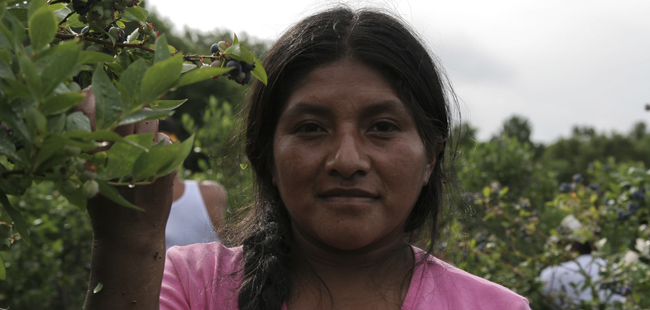FAN Stands in Solidarity Against the Agricultural Guestworker Act
 Wednesday, October 23, 2013 at 2:08PM by
Wednesday, October 23, 2013 at 2:08PM by  Amanda Soltes
Amanda Soltes The Farmworker Advocacy Network is one of over 200 coalitions, groups, and organizations that have recently signed a letter* opposing Representative Goodlatte’s Agricultural Guestworker Act, H.R. 1773, or the “Ag Act”. We believe this legislation could devastate our nation’s agricultural system and undermine core American values.
As written in a recent FAN blog post, the Ag Act seeks to lower protections for farmworkers by stripping away decades of worker protections to leave guestworkers virtually no protection from abusive conditions. Employers will not need to verify adequate working conditions, wages or insurance coverage for injuries, thus eliminating oversight of worker’s rights. Additionally, guestworkers are offered no pathway to becoming permanent legal U.S. citizens. Instead they will be required to self-deport with the only the possibility of returning as a temporary guestworker. This would leave temporary workers in a highly vulnerable position to be exploited solely for their labor.
As a coalition, we strongly oppose the Ag Act and believe it is an unworkable, anti-immigrant and anti- worker approach to our nation’s immigration problems. Hard-working farmworkers do not deserve to be relegated to a permanent 2nd class status apart from their families. As such, the Ag Act stands contrary to our nation’s core values of freedom, equality and family unity. Farmworkers have made invaluable contributions to our country, and they deserve protections that not only keep them safe but uphold their dignity as individuals and workers.
View the letter opposing the Agricultural Guestworker Act
*This letter has already been sent to members of the House of Representatives, however individuals can still join FAN in saying "NO" to unfair and un-workable farmworker legislation by weighing-in with their members of Congress or by accessing the United Farm Workers action alert calling for immigration reform.











 God Made a Farmer, and Farmworkers Too. Photo by Peter Eversoll.
God Made a Farmer, and Farmworkers Too. Photo by Peter Eversoll.

